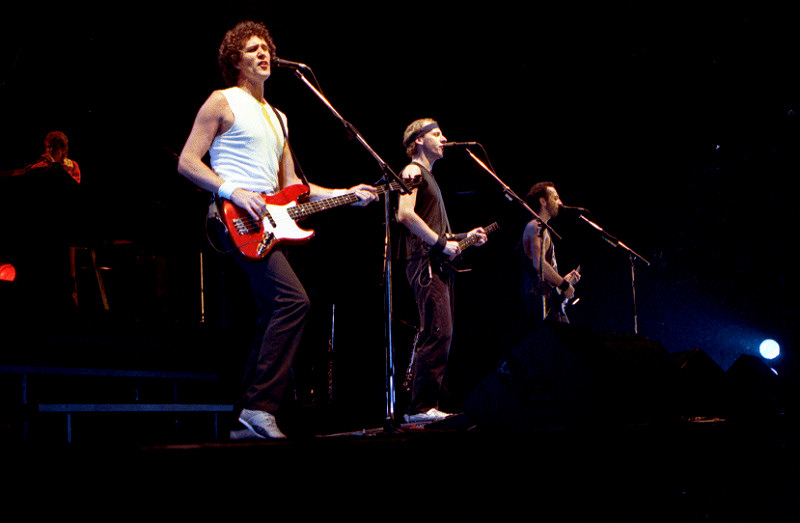Mark Knopfler’s Second Act
Since he walked away from the Dire Straits in 1995, the guitarist has found a new, quieter career as one of rock’s greatest songwriters
Mark Knopfler, dressed in jeans, boots and a black T-shirt, cuts a dark figure in a room that is otherwise all sunlight, polished wood and stainless steel. He is hunched in a chair speaking on his mobile phone to his 20-year-old son, himself a musician. “So many young musicians have no idea what work is,” he says in a rich, reassuring baritone. “You know it’s not just about talent or wanting to be famous. Music is something you really have to be willing to work at.”
We are in the second-floor reception area of Knopfler’s British Grove Studios, near the Hammersmith section of London, with its fast-food outlets, storefront colleges and shops advertising cut-price international telephone calls. But here at British Grove we are in that rarefied space where art meets commerce, and feng shui meets high tech. The air in the studios is ionised to give the musicians a boost of energy, and the recording equipment is a blend of the best of today’s technology and refurbished vintage amps, mikes and mixers. The woman who lets me in has the competent but serene look of a Reiki masseuse. “I’ve always wanted a studio, and now I have one,” Knopfler says, over a lunch of organic beef and wild rice.
Yet even in the state-of-the-art vastness of British Grove, Knopfler admits his favourite place is a little vest-pocket studio, perhaps 10 by 12, a fraction of the size of the rooms around it, wedged between two of the grander recording spaces. It reminds him of the bedroom practice space he’d set up while still teaching English at community college in London in the Seventies ”“ when he was saving portions of his weekly cheques in order to buy an electric guitar, and a good decade before his band, Dire Straits, became one of the biggest in the world. “It’s where I learned to play guitar until it was so automatic you could do it while you fell asleep.”
Since those days when money was scarce and obscurity was total, just about every good thing that can happen to a rock musician has happened to Knopfler, yet his orientation remains passionately on his musical present. He is neither fading gently into the night nor straining to re-create the glories of the past. Instead, Knopfler is creating a new paradigm for aging in the world of rock & roll, a strategy that requires maintaining an enthusiasm for music that outstrips obsession with career, and the courage to walk away from fame before it walks away from you ”“ his dissolution of Dire Straits, suddenly, in 1995, remains one of the more startling moves in the history of rock & roll.
“It got too big,” Knopfler says. “I like to experiment, keep it stripped down, maybe add a keyboard, a sax, a pedal steel. But those shows in stadiums became events, not really musical experiences. Getting out was the only intelligent decision. I was running from reality, running from my marriage, and I was disappearing into the road life. I didn’t like the person I was becoming. I was smoking all the time, killing myself with cigarettes. In order not to disrespect my talent, I had to look after myself. And my writing. My writing was suffering. I wanted to get back to the guy who wrote a song, recorded it and played it for people, but I wanted it all at a more realistic level.”
Knopfler’s writing during the Dire Straits years produced an abundance of great music, enough for at least two best-of compilations ”“ ”˜The Sultans of Swing,’ ”˜Romeo and Juliet,’ ”˜Brothers in Arms,’ ”˜Once Upon a Time in the West.’ But beginning with his first solo album, Golden Heart, in 1986, and continuing on with his great records of the last decade, Knopfler has gone on to write his finest songs ”“ songs that put him in the company of Bob Dylan, Joni Mitchell, Bruce Springsteen and Leonard Cohen. Yet the great songs of Knopfler’s second act have not brought him fame that equals or even approaches the glory days of Dire Straits. He is no longer packing vast arenas; he has gone from being a superstar and a celebrity to being a musician. Here in the US, many of the people to whom I mention him look at me blankly until I add, “the guy from Dire Straits,” at which point their eyes light up.







